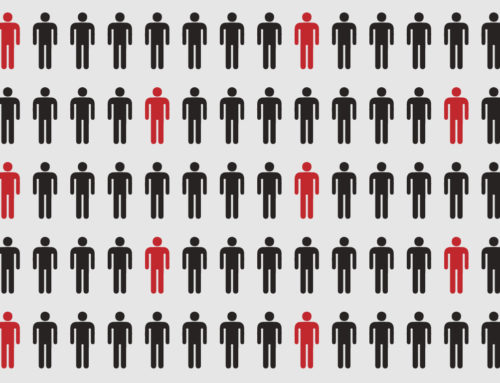Journey2Psychology, a project by: Dr. Michael Gordon
Mike Gordon is travelling across the world to converse with influential psychologists and discover the stories behind their work.
This journey will form the basis of a book from Political Animal Press
Follow Dr. Gordon’s travels in full at Journey2Psychology
In 1967 renowned Psychology professor Ulric Neisser published a book entitled Cognitive Psychology. Prior to to 1967 certainly there was a trove language and philosophy of mind research dating from ancient Greek philosophers, biologists, and religious scholars. By the late 1950’s Simon and Newell had developed the early AI programs investigating computational simulations and understanding of human processes from a computational perspective. There were studies of thoughts and decision making, but all of these studies of things going on in the mind during the early part of the 20th century were generally studied under the discipline of Experimental Psychology — a catch-all for anything that wasn’t clinical Psychology. Consequently it is Dr. Neisser who is known as the Father of Cognitive Psychology and with the publication of his book Cognitive Psychology, the mass adoption of recognizing/using/crediting certain kinds of thoughts and behaviors to that particular sub-discipline. Dr. Neisser died in 2012 with an incredible list of influential articles, books, and a founding role in one of the most important movements in late 20th century Psychology.
Dr. Kurt Lewin published a whole series of papers through the 1940’s until his death in 1947 (at only 57 years old) on the application of experimental methods to Social Science. His establishment of a series of methodological constraints and approaches to personality and behavior were influential both for his theoretical contributions, but also for his vision in helping other social scientists find a way to study some incredibly complex and difficult to control paradigms: namely our own social influences and social interactions. Dr. Lewin is commonly recognized as the Father of Social Psychology. His work as a social scientist not only established his importance in Psychology, but most other social sciences as well, from Anthropology to Political Science to Sociology.
One can credit the founding of Developmental Psychology to Dr. Jean Piaget and his most influential publications in the mid-1950’s and 1960’s. Dr. Piaget had sought to create a genetic epistemology in which he would establish how empirical understanding developed from birth to adulthood. He relied largely on very careful observation and testing of his own children, watching them come of age and engaging them in various forms of play involving mathematical, spatial, and logical puzzles to determine what concepts they understood at what stages of maturity. Dr. Piaget’s influence grew with his direction of the Centre for Genetic Epistemology at the University of Geneva, and the nativist ideas and paradigms he generated very much remain in the current context for our understanding of child development.
The Father of Neuroscience? Most often that is credited to Dr. Santiago Ramon y Cajal (who died in 1934) for his incredible research and meticulous renderings of neurons. Ramon y Cajal was very much an artist and he hand sketched neurons with a vividness that made these microscopic builders of our thoughts and actions accessible and enticing to many budding biologists. Those beautiful drawings have recently been traveling the world as a temporary exhibit in major art museums.
One can date the founding of Clinical Psychology to Hippocrates and approximately 2500 years, or more recently to Dr. Lightner Witmer who published an influential book on The Psychological Clinic with an article entitled Clinical Psychology in 1908. He used these media to call for this discipline’s founding. Dr. Witmer had hoped to influence the adoption of medical practice (and the idea of a medical clinic) into affecting changes in a patient’s mind. Following Witmer’s early guidance on creating clinical practice one might credit Carl Rogers (Humanism), Aaron Beck (Cognitive Therapy), Joseph Wolpe (Behavioral Therapy) for their innovations in clinical practice and interventions.
These founders of critical and influential movements of modern Psychology, in addition to people like Wilhelm Wundt (or possibly William James) who founded Experimental Psychology (or as we now refer to it Psychology), John Watson (or possibly Edward Thorndike) who is the Father of Behaviorism, Sigmund Freud who is the Father of Psychoanalysis, Gustav Fechner who is the Father of Psychophysics, and Clark Hull (or Tobias Dantzig, or F.C. Donders) who is the Father of Mathematical Psychology, are commonly credited for the parentage of our field.
Of course, part of the fun of doing a project such as is my current avocation is the recognition that ideas and, especially, movements in Psychology do not occur in a vacuum. For each idea, each discovery there is a context and there is important background. One need look no further than my recent conversation with Daphna Oyserman; she spoke with her father and was quickly warned off being a doctor and should instead try science as a greater goal to her life. There are always early influences from family to teachers to friends. Mike Posner was sidelined from continuing his studies to work for Boeing in fulfillment of his military requirement, leading to new areas of thinking about systems and human behavior. There are collaborators and students who contribute in ways both subtle and profound to the generation and evolution of theoretical movements. Tony Greenwald had a idea for uncovering hidden biases and benefited from his (then) student putting it out into the public for testing via social media to make it one of the first “viral” studies, i.e., with immediate, widespread public involvement.
We recognize the Founders of our field because they coined the names for critical movements and gave the early shape and direction to critical ideas. But to be a founder, to parent a movement is all mythology. As Dan Schacter found from his graduate school investigations on Richard Semon (who did brilliant and for decades nearly totally unrecognized research on memory), having great ideas isn’t enough. Having precocious ideas that predict the major movements to come in social and scientific thought isn’t enough. The major influencers have to function as both leaders of scientific thought and as communicators capable of capturing the gestalt of the moment and convincing others to move with them. Rarely are the parents of a field the “first” of with an idea, but they do communicate in ways that capture people’s excitement. To paraphrase Alan Baddeley, those mythical parents most commonly seem to find themselves at the crest of a wave that has swelled up from the many that came before.
In doing this project and thinking about our field’s history it has been a riveting project to track down some of the future parents of this field and to capture some history surrounding their backgrounds, collaborators, and the associated ground-swell of response (with all forms of positive, negative, and dismissive).
It is now June and I am in Scotland. From here I’ll make my way across to Ireland; I’ll fly from Dublin back to Texas. At that point, and with a bit of sadness at the precipice of a Journey’s end, I’ll round my way through the southeast — thousands of miles across Texas, Georgia, the Carolinas and up the east coast of the United States back home to New Jersey. Home. After 10 months of travel with my family the idea of connecting that construct to a physical location hardly seems to retain any meaning. Once back in New Jersey a new Journey commences as I will draw on more than 60 interviews with influential scholars in Psychology and use their voices and reflections to construct the modern history of our field. I think I’ve spoken with some of the mythical parents of Psychology’s future. I know having spoken to so many, read so much, and delved deeply into this diverse array of topics that writing a book that captures who we are and where we are headed as a field is a complex task.
Dr. Michael Gordon is a Professor of Psychology at William Paterson University in New Jersey. His research on Sensation & Perception emphasizes auditory and audiovisual detection (e.g., psychomusicology, psychoacoustics, speech, auditory navigation, collision detection, echolocation). He is working on a new project to capture the voices and ideas of prominent and influential Psychologists who have shaped the field. Follow him at Journey2Psychology
Image credit to Jessica Jozak










Leave A Comment